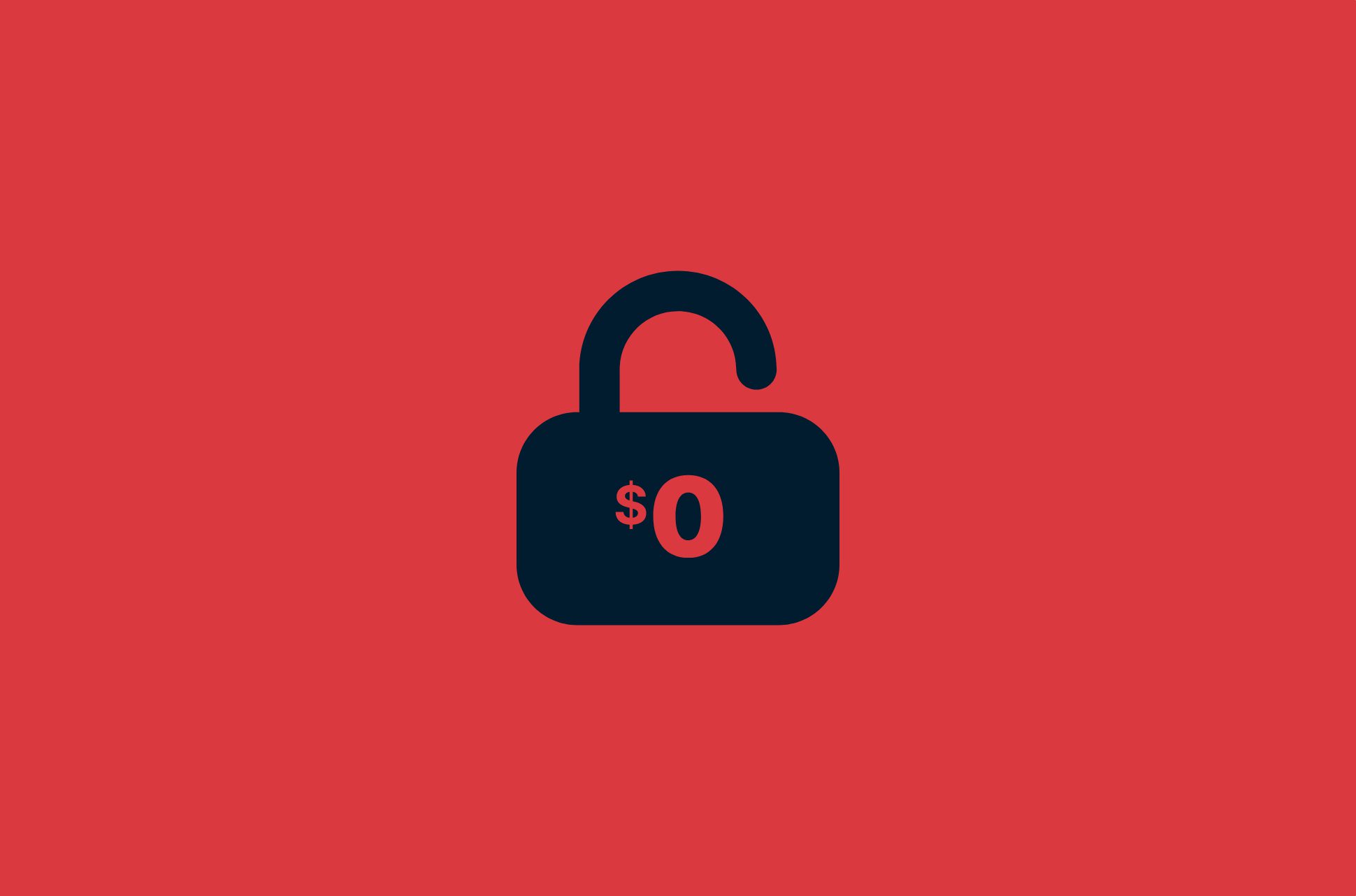
Online privacy is more important than ever, so it’s no surprise many people are searching for a reliable VPN service. One of the first questions that comes up is how much a VPN costs—but the answer depends on the provider, features, and subscription length.
The price of most credible VPNs range from a few dollars a month to over 13 USD, depending on whether you choose a monthly plan or a long-term subscription. Some providers even offer free VPNs, though these often come with trade-offs like slower speeds, data limits, and weaker security.
Rather than just looking at the price, it’s important to consider what you’re actually paying for. A premium VPN invests in fast, secure infrastructure, robust encryption, and privacy protections that free or budget options may not provide.
Let’s explore the core factors that influence VPN pricing, the difference between free and paid options, and how to find the best VPN for your needs.
Looking for a VPN that ticks all the boxes? ExpressVPN stands out with its powerful encryption, global server network, and user-friendly apps for your desktop, phone, and even routers. Every subscription includes 24/7 customer support, unlimited bandwidth, and a 30-day money-back guarantee—so you can try it risk-free.
What determines the cost of a VPN?
Several factors influence a VPN’s price, like subscription length, security features, and server coverage. VPN providers invest in infrastructure, development, and support to keep your connection both safe and fast. These expenses affect the final subscription rate, whether you opt for a monthly VPN plan or a long-term VPN subscription. Let’s break these factors down:
Subscription length
The length of your subscription is one of the biggest factors in VPN pricing. Monthly plans often look more expensive because providers charge a higher rate for the flexibility of a short-term commitment. Annual and multi-year packages, on the other hand, usually offer substantial discounts—often as much as 40–70% off—if you pay upfront.
Longer plans make sense if you use a VPN regularly or want ongoing security for streaming, remote work, or daily privacy. A short plan might be enough for a one-time trip or event, but a multi-year plan gives you better value if you plan to stay protected for months or years to come.
Features and functionality
A VPN subscription can come with a range of advanced security tools that can raise the monthly cost. Features like dedicated IP addresses, ad-blocking, malware protection, or additional privacy safeguards are typically included in premium plans. A basic plan might be fine if you only need encryption occasionally, but for ongoing protection, strong security, and extra functionality, a premium VPN is worth the extra cost.
Number of devices
Simultaneous connections affect VPN pricing because more devices require greater server capacity. One VPN provider might include five devices at a certain rate, while another offers more. For example, with an ExpressVPN subscription, you can connect up to eight devices across any platform. This is especially useful for households with multiple gadgets.
Global server coverage
Maintaining a large server network requires ongoing investment in hardware, infrastructure, and security. These costs impact VPN pricing, but they also determine the quality and reliability of your connection. A provider with more servers in more locations can offer faster speeds and more options for switching regions.
For example, ExpressVPN operates servers in 105 countries, allowing users to connect from a wide range of locations. This is especially useful for travelers who need unrestricted access, gamers looking to reduce lag, and remote workers who rely on a stable connection.
While smaller VPNs may charge less, they often have fewer servers, leading to congestion and slower speeds. A VPN with global reach and high-performance infrastructure will typically cost more, but it delivers a better, more consistent experience.
Advanced security features
Not all VPNs offer the same level of protection. Some providers cut costs by using outdated encryption or skipping independent audits, while others invest heavily in developing and maintaining advanced security protocols.
For example, ExpressVPN’s Lightway protocol is built for speed and strong encryption, ensuring a fast and private connection. Additionally, TrustedServer technology ensures that all servers run exclusively on RAM, wiping all data upon reboot—eliminating the risks associated with hard drive storage.
Security investments like these require ongoing development and regular audits, but they deliver stronger privacy protections and a more secure browsing experience.
Every ExpressVPN subscription includes advanced features designed for security, speed, and reliability. You’ll get full access to our global network of servers in 100+ countries, industry-leading encryption, and unlimited bandwidth—delivering a premium VPN experience built for performance.
Why do VPN prices vary?
VPN prices can differ dramatically from one provider to another. Each provider focuses on different priorities—performance, security, or infrastructure—which directly affect pricing. Here are three reasons VPN pricing can vary:
-
Server network and performance
As mentioned above, a large number of high-speed servers requires significant investment in hardware, maintenance, and bandwidth. VPNs with more locations and high-capacity servers typically charge more but offer better speeds, reduced congestion, and lower latency.
Some providers limit server capacity to cut costs, which can lead to overcrowding and slower speeds. A VPN that prioritizes performance and stability will invest more in high-speed infrastructure, ensuring consistent connections even under heavy traffic.
-
Streaming and P2P support
Many people use a VPN for streaming or peer-to-peer (P2P) file sharing. VPNs that reliably unblock streaming services or optimize for P2P traffic must allocate extra resources, which can increase costs. If streaming access or file sharing is a priority, it's worth choosing a provider that actively maintains and upgrades its servers to support these activities.
-
Security and privacy features
Some VPN providers prioritize encryption, independent security audits, and specialized infrastructure to protect user data. These investments increase costs but provide stronger security and privacy protections.
Unlike lower-cost providers that may use basic encryption or minimal privacy protections, premium VPNs invest in:
- Independent audits to verify no-logs policies.
- Stronger encryption standards for better protection.
- Privacy-friendly jurisdictions to avoid forced data collection.
Premium VPNs invest in security at every level, from encryption to infrastructure. ExpressVPN’s TrustedServer technology ensures that all servers run exclusively on RAM, wiping all data with every reboot. This eliminates the risks of hard drive storage, reducing vulnerabilities and ensuring a consistently secure experience.
Free vs. paid VPNs
Free VPNs don’t require a subscription fee but can come with hidden limitations. A paid, premium VPN can invest in better networks, higher speeds, strict no-logs policies, and quality customer support. If you only need a VPN occasionally for light tasks, you might manage with a free option, but a paid VPN is generally more secure and consistent.
This side-by-side comparison shows the differences between free and paid VPNs and highlights the inherent limitations of free services:
| Feature | Most Free VPNs | Reputable Paid VPNs |
| Cost | Free with some offering freemium options | Paid—monthly or yearly subscription fee |
| Server Locations | Limited options, often between a few server locations | Extensive network with servers in multiple countries |
| Connection Speed | Generally slow due to high user traffic among limited servers | Fast speeds with dedicated servers and bandwidth |
| Security | Basic encryption may lack advanced security features | Strong encryption protocols and added security features like a kill switch and leak protection |
| Privacy Policy | Might collect and sell your data | Typically has a strict no-logs policy |
| Customer Support | Limited but often non-existent | Responsive customer support and helpful resources like an FAQ portal |
| Device Compatibility | Typically supports either one OS or a few popular devices | Native support for desktop, mobile, and other devices |
| Bandwidth Limits | Could impose data and bandwidth caps | Unlimited bandwidth; no content-based throttling |
| Advertisements | Might display ads or promote sponsored content | Ad-free experience |
| Performance | Unreliable performance with frequent disconnections | Stable connections with minimal downtime |
| Features | Limited features and functionalities | Rich features such as split tunneling, dedicated IP, etc. |
| Streaming & Torrenting | Popular services restrict or block server IP addresses | Support for streaming and torrenting with servers that are regularly maintained |
| Reputation | Mixed reputation with privacy and security concerns | Trusted reputation known for privacy and security, often verified by independent audits |
Is a free VPN a good option?
A free VPN might seem like an easy way to stay private online without paying for a subscription. But most free VPNs come with serious trade-offs that can put your privacy, security, and browsing experience at risk.
Many free VPNs limit data, throttle speeds, and bombard users with ads to offset costs. Worse, some log user data and sell it to third parties, completely undermining the purpose of using a VPN for privacy. Others have even been found to contain malware, which exposes users to security threats instead of protecting them.
While a free VPN might work for very occasional, low-risk use, it’s important to understand the risks before relying on one for security.
Limitations of free VPNs
If a VPN doesn’t charge upfront, it has to make money in other ways. Here are some of the biggest drawbacks of free VPNs:
- Security risks: Many free VPNs use weak or outdated encryption, don’t receive regular security updates, and fail to protect against malicious sites. This can leave users vulnerable to cyberattacks, malware, and data theft.
- Privacy concerns: Some free VPNs track user activity and sell browsing data, device information, and personal details to advertisers or third parties. A few have even been caught embedding malware and tracking scripts into their apps.
- Performance issues: Free VPNs often overload their servers, resulting in slow speeds, buffering, and connection drops. Many also enforce strict data caps that make streaming, downloading, or even casual browsing difficult.
- Usability challenges: Free VPN users typically lack access to customer support, deal with intrusive ads, and struggle with restricted server access. Some streaming services also block free VPN IPs, making them unreliable for content access.
In short, free VPNs focus on cutting costs rather than protecting users, often creating more problems than they solve.
Why paid VPNs are worth it
A premium VPN offers more reliable security, better speeds, and stronger privacy protections than free alternatives. Paid VPNs invest in high-performance servers, advanced security protocols, and dedicated customer support, ensuring a faster and safer experience across multiple devices.
A paid VPN is also far less likely to track, log, or sell user data, providing true privacy and control over your online activity. Here are eight reasons why a paid VPN is worth it:
- Strong encryption: Protects your internet traffic so that sensitive data like passwords and financial details remain secure.
- No-logs policy: Ensures that your activity is never tracked, stored, or shared.
- Advanced leak protection: A kill switch prevents data exposure if the VPN connection drops.
- Unlimited bandwidth: With unlimited bandwidth you get no restrictions, no throttling—just seamless browsing, streaming, and downloading.
- Split tunneling: Lets you control which apps or websites use the VPN while keeping others on a direct connection.
- IP masking: Prevents tracking by ISPs, advertisers, and other third parties.
- Global server network: Connect to high-speed servers in 100+ countries for unrestricted content access.
- 24/7 customer support: Get expert assistance whenever you need it.
ExpressVPN delivers all these features and more—giving you fast, secure, and private access to the internet, anytime and anywhere. Protect your data with a VPN designed for speed, security, and reliability.
How to choose the right VPN for your needs
Picking the right VPN comes down to your personal habits. Some people primarily want a VPN for streaming; others need robust security for work. Maybe you’re looking for advanced privacy features or the ability to connect multiple devices. Consider your biggest priorities: Is streaming performance a must? Do you need a VPN that can handle many devices? Will you be logging in from places like airports, hotels, or coffee shops?
For streaming and entertainment
A streaming VPN helps you get around regional restrictions if you, for example, travel so you can watch shows, news, or sporting events that wouldn’t be available in your area otherwise. Look for providers with large server networks which make it easier to jump between regions for different content. Dedicated apps for smart TVs or streaming devices can simplify things, and speedy connections are key for high-quality video.
For privacy and security
If privacy is your top concern, focus on no-logs policies, strong encryption, and IP masking. Consider providers that run regular audits and operate in privacy-friendly jurisdictions. Some services add multi-hop connections or tracker blocking to boost security. If you handle sensitive data, these extra layers make the higher VPN cost worth it. Your privacy should come first. That’s why ExpressVPN is based in the British Virgin Islands, a jurisdiction with strong privacy laws that go beyond what you'll find in the U.S. or Europe.
For travel or remote work
Frequent travelers need a VPN that stays stable across different regions—even places with spotty internet. A VPN for travelers often has a large server network and user-friendly apps for phones, tablets, and laptops, so you can protect your data on hotel or café Wi-Fi. Remote workers might appreciate split tunneling, which can direct some traffic through the VPN while other tasks go through your normal connection.
Remote workers, freelancers, and small businesses can also benefit from a business VPN. It can provide centralized administration, dedicated IP addresses, and user management tools—useful for companies of any size. Pricing often scales with the number of users. If you manage a remote team or multiple locations, a secure business VPN is key to protecting sensitive data.
On top of these factors, consider how user-friendly the VPN apps are. Some providers keep things simple, while others offer detailed customization for more advanced users. Customer support is also crucial—24/7 help via live chat or email can save the day if you run into any issues.
Lastly, look at your budget. A cheap VPN might be fine for occasional use (even though we don’t recommend you use one), but regular streaming or large file transfers may call for a pricier, more premium plan.
How can you get the most value from a VPN?
VPN prices often fluctuate with discounts, holiday deals, or coupon codes. If you want to keep costs down but still get a strong VPN, here are a few tips:
Choose long-term plans (annual or multi-year subscriptions)
Signing up for a longer VPN plan can bring down your monthly cost. Many providers offer discounts on annual or multi-year subscriptions, making them a better deal if you use a VPN regularly. While you’ll pay more upfront, the overall savings can be worth it—especially if you rely on a VPN for privacy, streaming, or secure browsing every day.
Look for seasonal discounts and promotions
VPN providers often offer special discounts during major shopping events like Black Friday, Cyber Monday, and holiday sales. These deals can include lower subscription prices, extra free months, or exclusive coupon codes. If you time your purchase right, you can secure a long-term plan at a much better rate.
Use free trials or money-back guarantees
Many VPNs offer a free trial or a window for refunds, letting you test speeds, features, and app compatibility without a long-term commitment. If the service isn’t up to your standards, you can cancel and get your money back. ExpressVPN, for example, offers a 30-day money-back guarantee. This approach helps you confirm the VPN meets your requirements before fully committing.
Essentially, committing to an annual plan, keeping an eye out for promotions, and taking advantage of money-back guarantees can help you get the best value from a VPN. If you’re securing multiple devices or a household, look for a subscription that supports simultaneous connections, so you can protect everything under one plan.
Is a VPN worth it?
If you value privacy, security, and unrestricted access to the internet, then yes—a VPN is absolutely worth it. But it’s important to choose the right one.
The value of a VPN depends on what it offers beyond basic encryption. Free and budget options often log user data, restrict speeds, or fail to unblock content, which can undermine their purpose. On the other hand, a trusted VPN with strong security, fast servers, and a no-logs policy ensures real privacy, protection, and performance.
If you need a VPN for secure browsing, streaming, or work, investing in a reputable provider is the best way to ensure both privacy and reliability. Instead of focusing only on price, look for a VPN that delivers real protection, transparency, and the features that matter to you.
For a VPN that delivers real security, speed, and privacy, ExpressVPN offers trusted encryption, a no-logs policy, and a high-performance global network—so you stay protected without compromise. Try ExpressVPN risk-free with a 30-day money-back guarantee.
FAQ: About VPN cost
How much does a VPN cost on average?
Is it worth paying for a VPN?
Are there any hidden costs with VPNs?
How much does a VPN cost for a company?
Take the first step to protect yourself online. Try ExpressVPN risk-free.
Get ExpressVPN

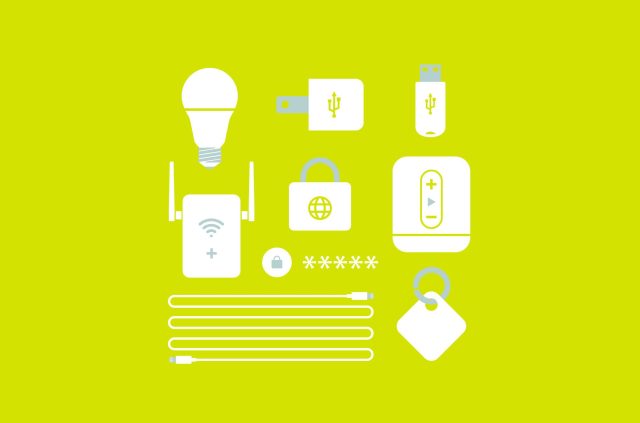

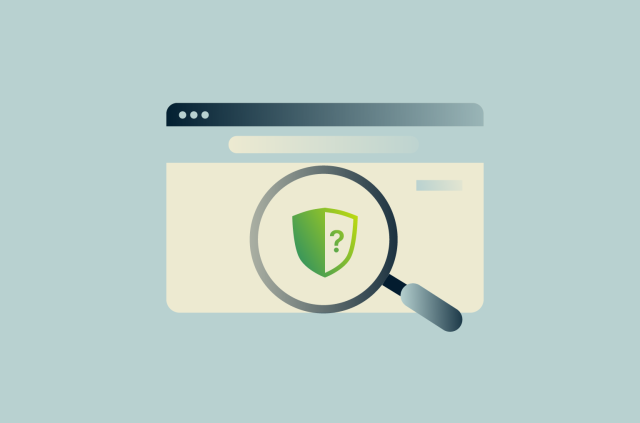



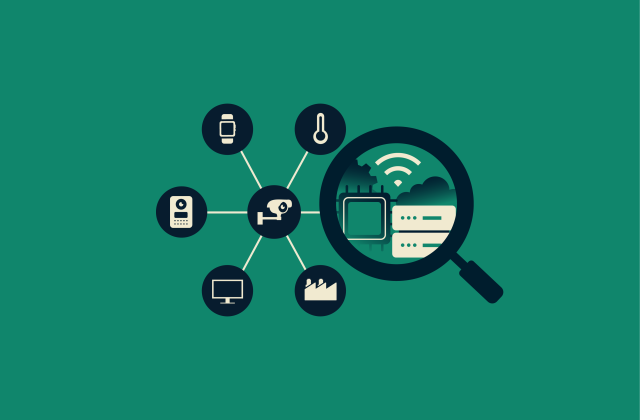

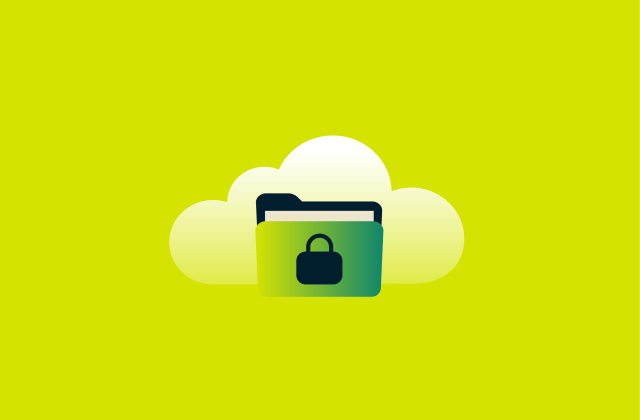
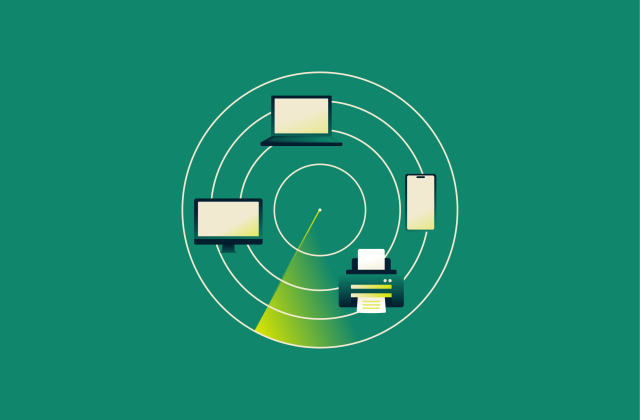


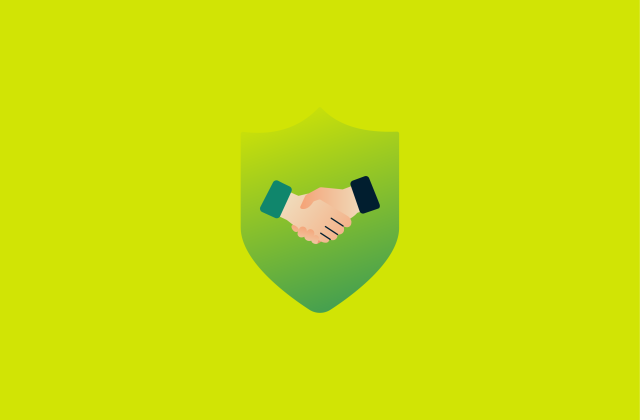
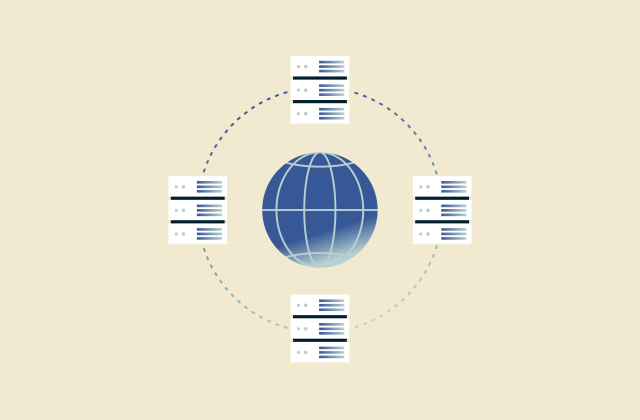





Comments
good